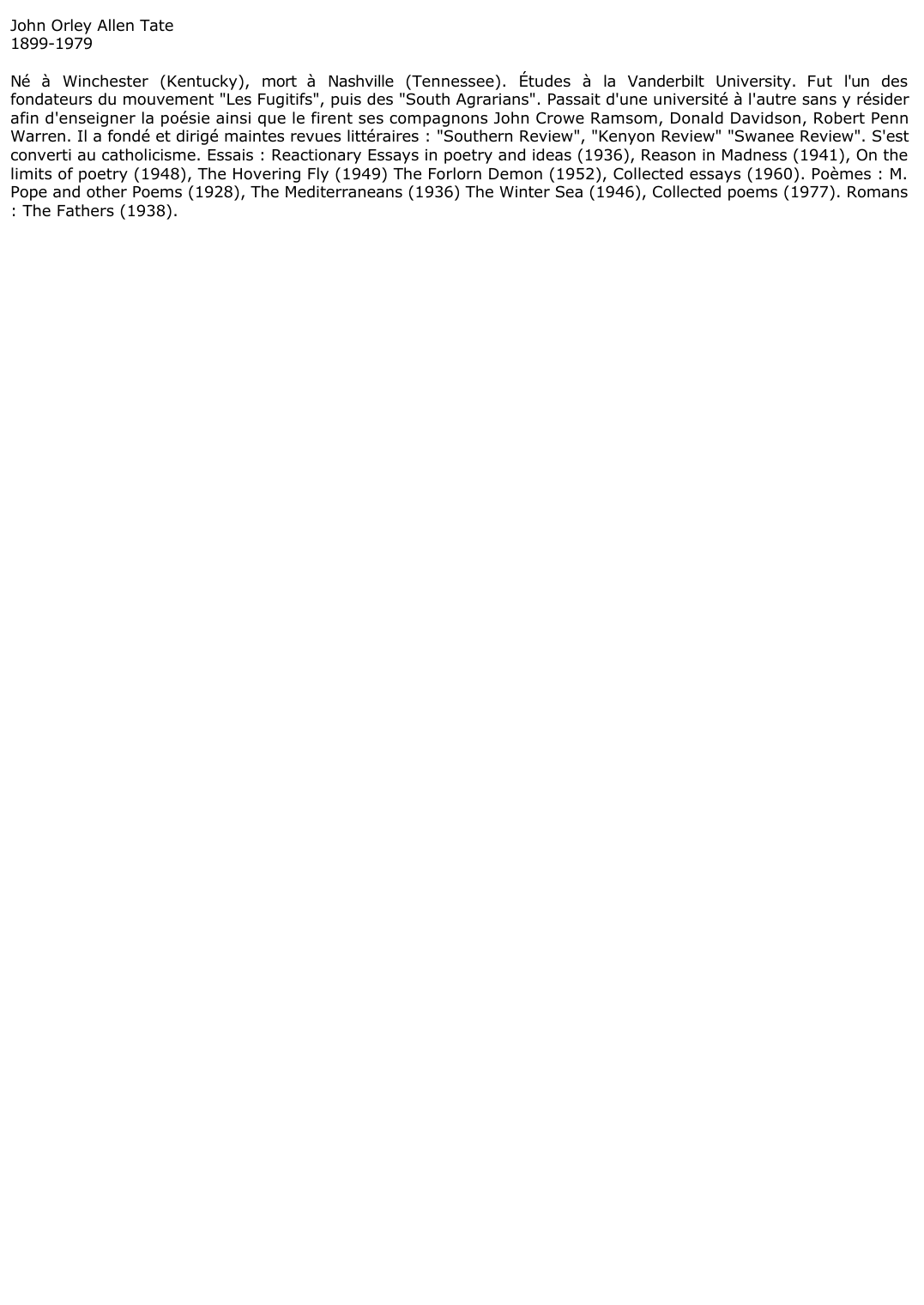John Orley Allen Tate
Publié le 09/12/2021

Extrait du document
John Orley Allen Tate 1899-1979 Né à Winchester (Kentucky), mort à Nashville (Tennessee). Études à la Vanderbilt University. Fut l'un des fondateurs du mouvement "Les Fugitifs", puis des "South Agrarians". Passait d'une université à l'autre sans y résider afin d'enseigner la poésie ainsi que le firent ses compagnons John Crowe Ramsom, Donald Davidson, Robert Penn Warren. Il a fondé et dirigé maintes revues littéraires : "Southern Review", "Kenyon Review" "Swanee Review". S'est converti au catholicisme. Essais : Reactionary Essays in poetry and ideas (1936), Reason in Madness (1941), On the limits of poetry (1948), The Hovering Fly (1949) The Forlorn Demon (1952), Collected essays (1960). Poèmes : M. Pope and other Poems (1928), The Mediterraneans (1936) The Winter Sea (1946), Collected poems (1977). Romans : The Fathers (1938).
«
John Orley Allen Tate1899-1979
Né à Winchester (Kentucky), mort à Nashville (Tennessee).
Études à la Vanderbilt University.
Fut l'un desfondateurs du mouvement "Les Fugitifs", puis des "South Agrarians".
Passait d'une université à l'autre sans y résiderafin d'enseigner la poésie ainsi que le firent ses compagnons John Crowe Ramsom, Donald Davidson, Robert PennWarren.
Il a fondé et dirigé maintes revues littéraires : "Southern Review", "Kenyon Review" "Swanee Review".
S'estconverti au catholicisme.
Essais : Reactionary Essays in poetry and ideas (1936), Reason in Madness (1941), On thelimits of poetry (1948), The Hovering Fly (1949) The Forlorn Demon (1952), Collected essays (1960).
Poèmes : M.Pope and other Poems (1928), The Mediterraneans (1936) The Winter Sea (1946), Collected poems (1977).
Romans: The Fathers (1938)..
»
↓↓↓ APERÇU DU DOCUMENT ↓↓↓
Liens utiles
- John Orley Allen Tate (1899-1979) Né à Winchester (Kentucky), mort à Nashville (Tennessee).
- explication de texte: John Locke a écrit en 1690 un essai philosophique concernant l’entendement humain, nous allons analyser un extrait du livre II, chapitre 27, paragraphe 26
- John Steinbeck
- Saint-John Perse
- Saint-John Perse


